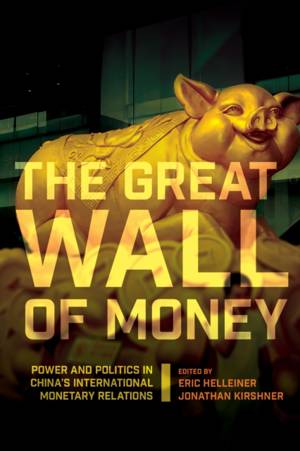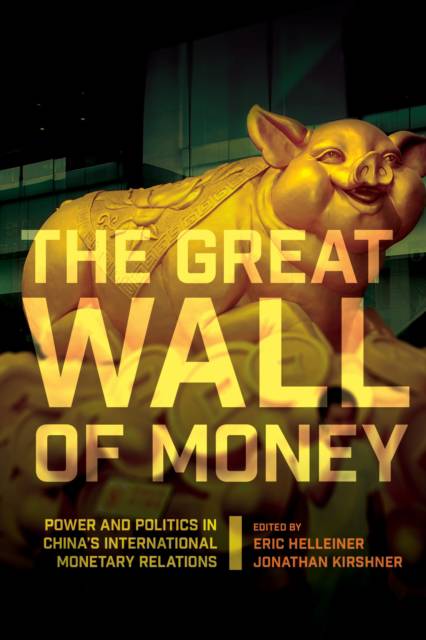
- Afhalen na 1 uur in een winkel met voorraad
- Gratis thuislevering in België vanaf € 30
- Ruim aanbod met 7 miljoen producten
- Afhalen na 1 uur in een winkel met voorraad
- Gratis thuislevering in België vanaf € 30
- Ruim aanbod met 7 miljoen producten
The Great Wall of Money
Power and Politics in China's International Monetary Relations
Omschrijving
As an economic superpower, China has become an increasingly important player in the international monetary system. Its foreign exchange reserves are the largest in the world and its exchange rate policy has become a major subject of international economic diplomacy. The internationalization of the renminbi (RMB) raises critical questions in international policy circles: What kinds of power is China acquiring in international monetary relations? What are the priorities of the Chinese government? What explains its preferences?In The Great Wall of Money, a distinguished group of contributors addresses these questions from distinct perspectives, revealing the extent to which China's choices, and global monetary affairs, will be shaped by internal political factors and affect world politics. The RMB is a likely competitor for the dollar in the next couple of decades; its emergence as an important international currency would have substantial effects on the balance of power between the United States and China. By illuminating the politics of China's international monetary relations, this book provides a timely account of the global economy, the role of the renminbi in international relations, and the trajectory of China's continuing ascendency in the coming decades.Contributors: Gregory Chin, York University; Benjamin J. Cohen, University of California, Santa Barbara; Eric Helleiner, University of Waterloo and Balsillie School of International Affairs; Yang Jiang, Danish Institute for International Studies; Jonathan Kirshner, Cornell University; Bessma Momani, University of Waterloo and Balsillie School of International Affairs; David Steinberg, University of Oregon; Andrew Walter, University of Melbourne; Hongying Wang, University of Waterloo and Balsillie School of International Affairs
Specificaties
Betrokkenen
- Uitgeverij:
Inhoud
- Aantal bladzijden:
- 288
- Taal:
- Engels
- Reeks:
Eigenschappen
- Productcode (EAN):
- 9780801453090
- Verschijningsdatum:
- 8/09/2014
- Uitvoering:
- Hardcover
- Formaat:
- Genaaid
- Afmetingen:
- 155 mm x 231 mm
- Gewicht:
- 498 g

Alleen bij Standaard Boekhandel
Beoordelingen
We publiceren alleen reviews die voldoen aan de voorwaarden voor reviews. Bekijk onze voorwaarden voor reviews.










